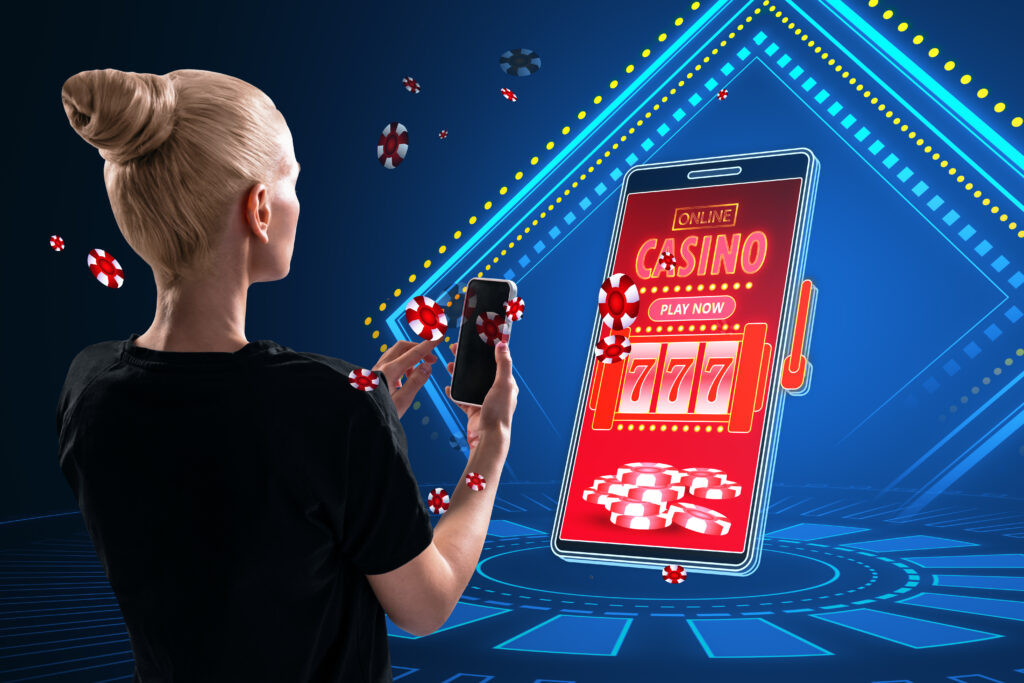Progressive Jackpot EV Simulator
Progressive jackpot slots can be hugely tempting: watching jackpots grow in real time, with the biggest slots jackpots ranging up to £1,000,000’s.
Behind every mammoth jackpot lies tiny hit probabilities and sometimes 10,000s of hours of play from 1,000s of players.
At Oddsmart, we build matched-betting software that empowers punters to make data-driven decisions.
Our Progressive Jackpot EV & Time-To-Hit Simulator puts the maths at your fingertips, with a theoretical forecast of when the jackpot might land.
Progressive Jackpot EV & Time-To-Hit Simulator
Results
Base EV per Spin: £0.00
Jackpot EV per Spin: £0.00
Total EV per Spin: £0.00
Spins per Hour: 0
EV per Hour: £0.00
Expected Spins to Hit: 0
Expected Time to Hit (hours): 0.00
Expected Value (EV) per spin
combining base RTP and jackpot contribution
Expected EV per hour
based on your average spins per minute
Expected time to hit
the jackpot, in hours
- What a progressive jackpot is—and why raw RTP doesn’t tell the whole story
- Why EV and time-to-hit matter when chasing large jackpots
- How Oddsmart’s Simulator works—step-by-step instructions
- The underlying mathematics, in plain English
- A real-world example demonstrating true EV and expected wait time
- Popular FAQs to address every common question

What Is a Progressive Jackpot?
A progressive jackpot is a slot machine prize pool that grows incrementally as players place bets. A small percentage of each stake contributes to the jackpot, which can reach 5-8 figures on popular progressive slots games. Unlike fixed-payout slots, progressives offer the tantalising prospect of an enormous, unpredictable windfall. However, progressives typically have:
Lower base RTP
(often 90%–94%) to subsidise the jackpot
Microscopic hit probabilities
(e.g. 1 in 100,000,000 per spin) for the top prize
Wide variance
meaning long droughts without any jackpot wins
Why EV and Time-To-Hit Matter
Expected Value (EV)
EV per spin measures the average amount you can expect to win (or lose) each time you spin, combining:
- Base game EV: your stake × base RTP
- Jackpot EV: jackpot size × hit probability
A positive EV per spin would indicate mathematical profitability—but progressives rarely exceed 100% total EV.
Expected Time to Hit
Even if EV per spin is slightly positive, the expected time to hit the jackpot may be impractically long—hundreds or thousands of hours.
By modelling time-to-hit, you can decide whether the small extra EV from the jackpot chance is worth the time investment versus other matched-betting opportunities.
Introducing the Oddsmart Simulator
Our Progressive Jackpot EV & Time-To-Hit Simulator is a lightweight spreadsheet that instantly shows
| Input | Description |
|---|---|
| Bet Size (£) | Stake per spin |
| Base RTP (%) | Slot RTP excluding jackpot contribution |
| Jackpot Size (£) | Current value of the progressive jackpot |
| Jackpot Hit Probability | Chance of jackpot per spin (e.g. 0.000001 → 1/1,000,000) |
| Average Spin Time (s) | Seconds per spin (including load and animations) |
Once inputs are entered,our slots betting simulator calculates:
| Output | Formula |
|---|---|
| Base EV per Spin (£) | Bet Size × (Base RTP ÷ 100) |
| Jackpot EV per Spin (£) | Jackpot Size × Hit Probability |
| Total EV per Spin (£) | Base EV + Jackpot EV |
| Spins per Hour | 3600 ÷ Average Spin Time |
| EV per Hour (£) | Total EV per Spin × Spins per Hour |
| Expected Spins to Hit | 1 ÷ Hit Probability |
| Expected Time to Hit (hrs) | (Expected Spins to Hit × Average Spin Time) ÷ 3600 |
Stay Ahead with Live Promotions & News
How to Use the Slots Simulator
- Enter your inputs:
- Bet Size in the stake box.
- Base RTP from the slot’s published RTP.
- Jackpot Size as shown on the machine.
- Hit Probability, often disclosed as “1 in X spins.” Convert to decimal (e.g. 1/1,000,000 = 0.000001).
- Average Spin Time, measured in seconds (3–5 seconds typical).
- Review the outputs:
- Total EV per Spin tells you the combined average profit or loss per wager.
- EV per Hour scales that to your play speed.
- Expected Time to Hit reveals how many hours you’ll likely wait for a jackpot hit.
- Interpret your results:
- Negative Total EV suggests you’ll lose on average—best to skip.
- Slightly positive EV with a reasonable time-to-hit may justify chasing.
- High EV but hundreds of hours-to-hit might still be a poor use of time.
That’s it—no complex macros or external data feeds. The Simulator runs entirely within your spreadsheet, recalculating instantly as you adjust values.
Under the Hood: The Maths Explained
Base EV per Spin
Jackpot EV per Spin
Total EV per Spin
Spins per Hour
EV per Hour
Expected Spins to Hit
Expected Time to Hit
Real-World Example
- Bet Size: £1
- Base RTP: 95%
- Jackpot Size: £200,000
- Hit Odds: 1 in 2,000,000 → 0.0000005
- Spin Time: 4 seconds
Base EV per Spin
1×0.95=£0.951 \times 0.95 = £0.951×0.95=£0.95
Jackpot EV per Spin
200,000×0.0000005=£0.10
Total EV per Spin
£0.95+£0.10=£1.05£0.95 + £0.10 = £1.05£0.95+£0.10=£1.05
Spins per Hour
3600÷4=9003600 ÷ 4 = 9003600÷4=900
EV per Hour
900×£1.05=£945900 \times £1.05 = £945900×£1.05=£945
Expected Spins to Hit
1÷0.0000005=2,000,0001 ÷ 0.0000005 = 2{,}000{,}0001÷0.0000005=2,000,000
Expected Time to Hit
2,000,000×4÷3600≈2,222 hours (≈93 days)
At first glance, EV per spin exceeds £1, and EV per hour is high—but this assumes average spin returns including jackpots In reality, you’ll lose 50p per spin non-jackpot variance, and only 1 jackpot every 93 days on average. In other words, chasing this jackpot is a high-variance, long-term gamble that most matched bettors will want to avoid in favour of steadier, lower-variance opportunities.
Conclusion: Data-Driven Jackpot Decisions
Progressive jackpots promise glamour and life-changing payouts—but without a clear understanding of EV and expected wait times, even the largest prize can prove a money drain.
Oddsmart’s Progressive Jackpot EV & Time-To-Hit Simulator equips you with the real numbers.
Ready to demystify progressives?

Popular Progressive Jackpot Simulator FAQs
Can progressive jackpots ever be positive EV?
Rarely. Only when jackpot size is enormous relative to hit odds. Most progressives have total EV well below 100%.
How do I find the jackpot hit probability?
Manufacturers sometimes publish “1 in X” spin odds. If not, you may estimate based on theoretical hit frequency or seek community data.
Does this model include bonus spins?
No—this simulator assumes real-money spins. For free spins or bonus rounds, adjust spin time or base RTP inputs accordingly.
What about other jackpots (networked, local)?
Just input the current networked jackpot size and the published hit odds. The same formulas apply.
How accurate is the expected time calculation?
It’s a statistical average. Actual time to hit can be much shorter or much longer, due to variance.
Can I use this with live dealer jackpots?
Yes—if you know the hit probability and spin time, this model works for any progressive.
